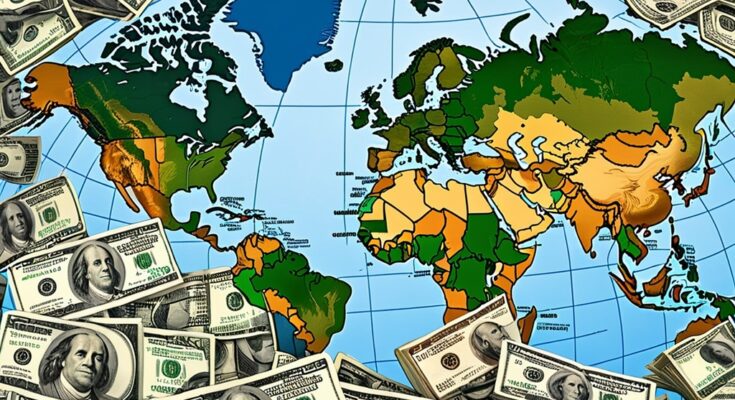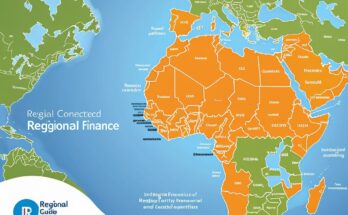Understanding World Finance: A Comprehensive Guide to Global Economic Systems
In today’s interconnected world, the term “world finance” encompasses far more than just stock markets and banking systems. It represents the intricate web of global economic activities, policies, and institutions that shape how money flows across borders, impacts nations, and influences everyday lives. Whether you’re an investor, a student, or simply someone curious about how the global economy works, understanding world finance is crucial in navigating the modern financial landscape.
This blog post will delve into the fundamentals of world finance, explore its key components, and discuss its impact on individuals and nations alike. By the end, you’ll have a clearer picture of how global finance operates and why it matters.
What is World Finance?
World finance refers to the system of managing money, investments, and financial resources on a global scale. It involves the interaction of various financial markets, institutions, and policies that facilitate the flow of capital across countries. This includes everything from international trade and foreign exchange markets to global banking systems and multinational corporations.
At its core, world finance is about connecting economies. When one country invests in another, trades goods, or borrows money, it creates a ripple effect that impacts global economic stability and growth. Understanding these dynamics is essential for anyone looking to make informed financial decisions in an increasingly globalized world.
Key Components of World Finance
To grasp the complexity of world finance, let’s break it down into its essential components:
1. International Trade
International trade is the backbone of world finance. It involves the exchange of goods and services between countries, facilitated by currencies and trade agreements. For example, when the U.S. imports electronics from China or exports agricultural products to Europe, it influences currency values, employment rates, and economic growth in both regions.
2. Foreign Exchange Markets (Forex)
The foreign exchange market is where currencies are traded. It’s the largest financial market in the world, with trillions of dollars exchanged daily. Exchange rates fluctuate based on supply and demand, geopolitical events, and economic policies, impacting everything from travel costs to the price of imported goods.
3. Global Banking Systems
Banks play a pivotal role in world finance by providing loans, facilitating international transactions, and managing risks. Multinational banks like HSBC, JPMorgan Chase, and Barclays operate across borders, ensuring the smooth flow of capital between nations.
4. International Financial Institutions
Organizations like the International Monetary Fund (IMF), World Bank, and World Trade Organization (WTO) are central to world finance. They provide financial assistance, regulate trade, and promote economic stability in developing and developed nations alike.
5. Multinational Corporations (MNCs)
Companies like Apple, Amazon, and Toyota operate on a global scale, influencing world finance through investments, job creation, and trade. Their activities often shape economic policies and market trends worldwide.
The Impact of World Finance on Everyday Life
You might wonder, “How does world finance affect me?” The truth is, its influence is everywhere:
- Consumer Prices: Fluctuations in currency values can make imported goods cheaper or more expensive. For instance, a weaker dollar might increase the cost of electronics manufactured abroad.
- Job Markets: Global trade and investments create jobs in various sectors, from manufacturing to technology. Conversely, economic downturns in one country can lead to job losses in another.
- Investment Opportunities: World finance opens doors to diverse investment options, such as foreign stocks, bonds, and mutual funds. Diversifying your portfolio globally can help mitigate risks and maximize returns.
- Economic Stability: Policies and decisions made by international financial institutions can stabilize or destabilize economies. For example, IMF bailouts can help countries recover from financial crises.
Challenges in World Finance
While world finance offers numerous benefits, it also faces significant challenges:
1. Economic Inequality
The gap between rich and poor nations remains a pressing issue. While developed countries thrive, many developing nations struggle with debt, poverty, and limited access to financial resources.
2. Geopolitical Tensions
Trade wars, sanctions, and political conflicts can disrupt global financial systems. For example, the U.S.-China trade war has had far-reaching effects on global markets.
3. Climate Change
Environmental issues are increasingly impacting world finance. Natural disasters, rising sea levels, and resource scarcity pose risks to economies and financial stability.
4. Technological Disruptions
While technology has revolutionized finance (think blockchain and digital currencies), it also brings challenges like cybersecurity threats and the risk of job displacement.
The Future of World Finance
As we look ahead, several trends are shaping the future of world finance:
1. Digital Currencies
Cryptocurrencies like Bitcoin and Ethereum are gaining traction, challenging traditional banking systems and offering new investment opportunities.
2. Sustainable Finance
There’s a growing emphasis on environmental, social, and governance (ESG) investing. Investors are increasingly prioritizing companies that align with sustainable practices.
3. Artificial Intelligence (AI)
AI is transforming financial services by improving risk assessment, fraud detection, and customer experiences.
4. Global Collaboration
In an interconnected world, collaboration between nations and institutions is essential to address challenges like climate change, economic inequality, and financial crises.
How to Stay Informed About World Finance
Staying updated on global financial trends is easier than ever, thanks to the internet. Here are some tips:
- Follow Reputable News Sources: Websites like Bloomberg, Reuters, and The Financial Times provide reliable updates on world finance.
- Subscribe to Financial Blogs and Podcasts: Many experts share insights on global markets and economic trends.
- Use Financial Tools: Apps and platforms like Yahoo Finance and Investing.com offer real-time data and analysis.
- Educate Yourself: Consider taking online courses or reading books on international finance to deepen your understanding.
Conclusion
World finance is a vast and dynamic field that impacts every aspect of our lives. From the prices we pay for goods to the jobs we hold, its influence is undeniable. By understanding its key components, challenges, and future trends, you can make more informed decisions and navigate the complexities of the global economy with confidence.
Whether you’re an investor, a business owner, or simply a curious individual, staying informed about world finance is essential in today’s interconnected world. So, take the time to explore this fascinating topic—it might just open doors to new opportunities and insights.
Final Thoughts
As the world becomes more interconnected, the importance of understanding world finance cannot be overstated. It’s not just about numbers and markets; it’s about people, policies, and the future of our global community. By staying informed and engaged, you can play a part in shaping a more stable and prosperous world.
If you found this guide helpful, feel free to share it with others who might benefit from it. And don’t forget to explore more content on our website to stay updated on the latest trends in finance, technology, and global affairs. Together, let’s navigate the exciting world of finance!




